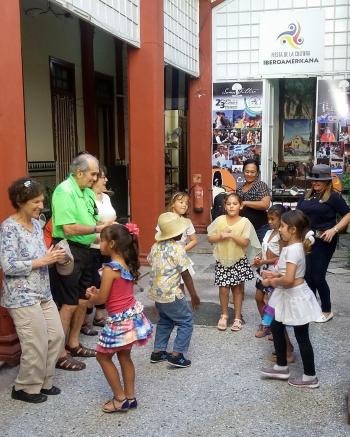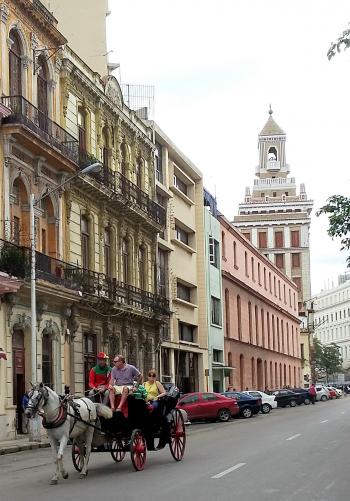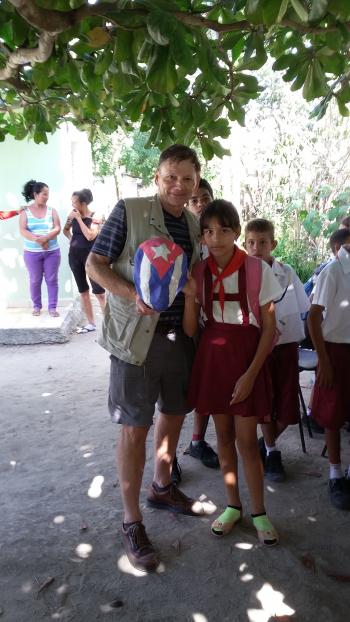Cuba update 2018 (First of two parts)
This item appears on page 54 of the May 2018 issue.
It is my privilege to travel to the fascinating country of Cuba on a regular basis as a tour director, leading groups on educational “People-to-People” tours under a license authorized by the US government.
Along with my experience, being on the ground and behind the scenes makes it possible for me to stay current on most events affecting travel on the island. I also try to remain up to date on the US administration’s policies governing travel to Cuba by US citizens.
In this article, I will endeavor to answer some of the questions I am repeatedly asked in this area.
Decline in visitors from the US
Comparing the 2017-2018 “high season” in Cuba (November to March) to the season a year earlier, the number of visitors from the US is considerably lower. On my side of the industry, operating tours, we are seeing a lot fewer groups, and the groups are smaller.
This is verified by spokesmen for major Cuban ground operators and hoteliers servicing the US market. Additionally, they report that group business currently on the books for the 2018 fall and 2018-2019 winter seasons is down markedly from last year.
Those who do travel to Cuba now, in licensed groups or under other licenses, will experience fewer crowds in the more popular locations and, as a result, will enjoy a more relaxed visitor experience.
The reinstituted US government ban on island visits by those traveling independently under the “People-to-People” regulations has had predictable results. The loss of revenue from these visitors is primarily affecting the individual Cubans who are trying to achieve personal financial freedom by establishing private businesses related to tourism.
This is especially the case with private-enterprise, Airbnb-type house- and room-rental operations, which now number in the thousands throughout the country. Also impacted are the hundreds of paladares (privately owned restaurants) that have come into being, island-wide, over the last few years.
Both depend heavily on the patronage of Americans traveling there independently. As a result, untold numbers of Cubans who started private businesses are either struggling or have already closed their doors.
Authorized “People-to-People” tour groups use transport, hotel and some restaurant services that are provided primarily by agencies of the Cuban government. While the downturn in independent US travelers has also had an impact on these entities, it has affected private-enterprise Cubans much more.
Flash: independent travel to Cuba is still legal
Despite the official travel ban on US citizens traveling to Cuba independently under the “People-to-People Travel” license category, on each trip to Cuba I encounter a few Americans, primarily under age 35, who are, indeed, traveling independently.
Most of them are traveling under the provisions of the “Support for the Cuban People” license category as specifically outlined on the PDF that is downloadable from the US Department of the Treasury at the following URL: www.treasury.gov/resource-center/sanctions/Programs/Documents/cuba_fact_....
Someone traveling under this category of license has purchased a Cuba Tourist/Visa Card from a designated booth in an airport’s departure lobby or from the airline or travel company he is using. He signs a declaration at that time, stating he will fully adhere to the applicable provisions of the “Support for the Cuban People Travel” license while in Cuba.
The requirements of this category are actually fairly broad and can definitely be adapted to personal interests.
In general, US travelers are supposed to avoid transactions at and with government-owned businesses, including the many government-operated hotels.
Travelers are supposed to stay at privately owned rental properties, known primarily as casas particulares (many of which are listed on Airbnb.com or at other international rental sites), and they are supposed to eat at, for example, paladares.
Additionally, they are required to have contact with and engage with independent entrepreneurs, such as musicians, food vendors and artists, and to frequent private museums, etc., thus supporting the Cuban people. Americans visiting independently under the “Support for the Cuban People” license are supposed to engage in these activities enough hours each weekday to constitute a full-time schedule.
Finally, each traveler is supposed to plan and make a schedule or journal of all of these activities and retain it for five years, in the event the US government wishes to contact him regarding the details of his visit. Some Cuba-travel planners in the US offer planning services for individual travelers that conform to these regulations.
In part two of this article, I will provide recommendations for planning legal independent travel to the island plus an update on the overall outlook for Cuba travel in the immediate future.
You may reach Randy at 80 America Way, Jamestown, RI 02835; 401/560-0350, randykeck@yahoo.com.



